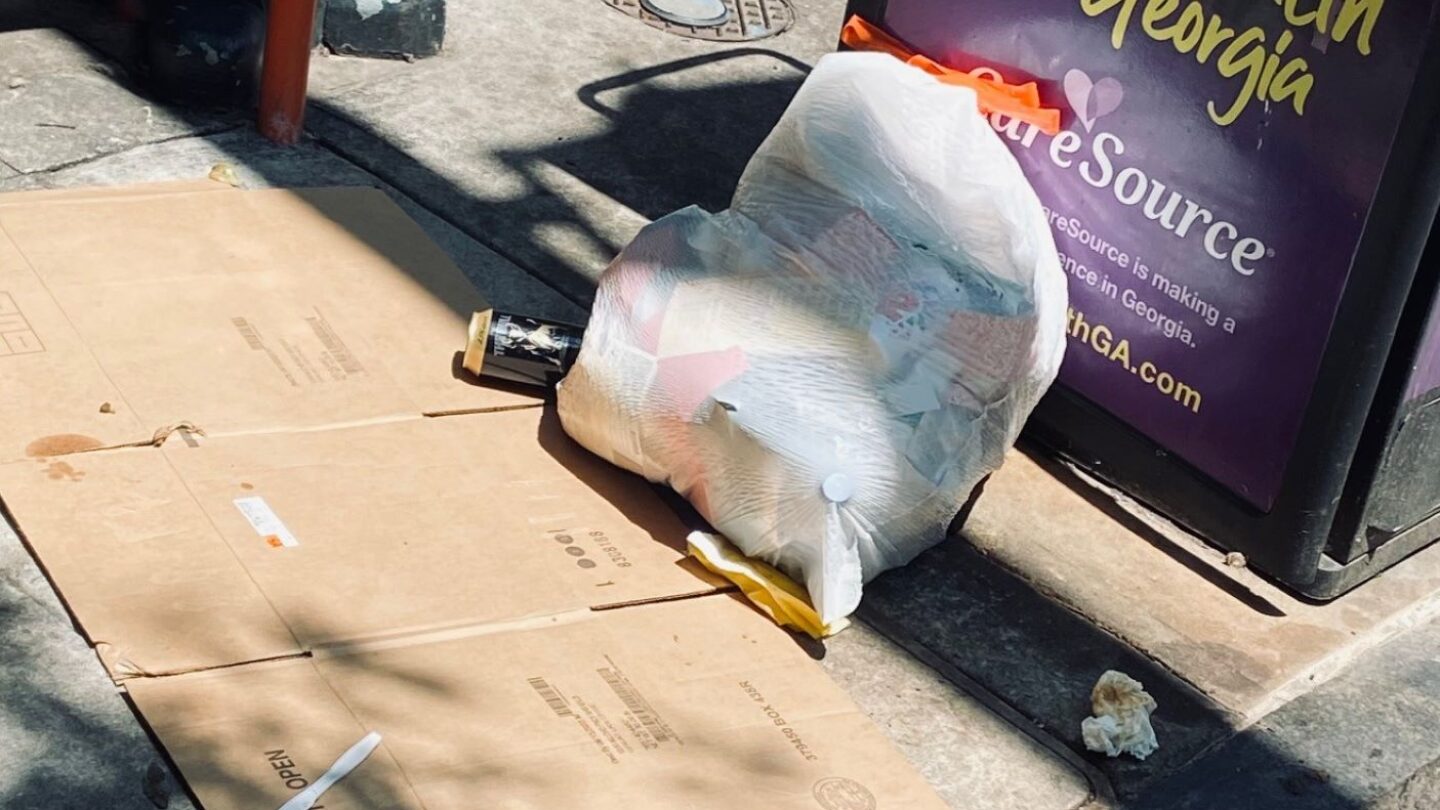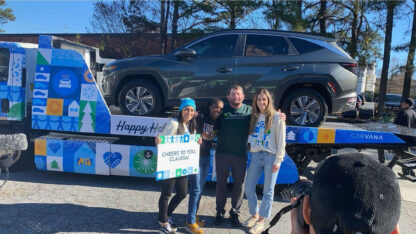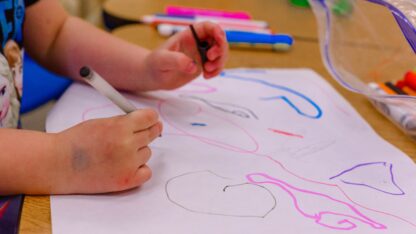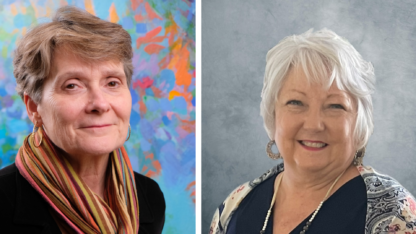The busy streets of downtown Atlanta can be cold, hard and unforgiving – especially to those who don’t have shelter.
Many Atlanta residents, such as Anthony Owens, know this struggle for survival all too well. In a parking deck across the street from a downtown homeless shelter, Owens has created a makeshift bed that has become one of his few possessions.
Aside from being one of the thousands of Georgians experiencing homelessness, Owens is one of more than 600 homeless veterans in Georgia, according to a federal government report.
“I’m desolate right now … I don’t have anything,” said Owens. “You all promised us that when we came off active duty that you were going to help us live the best life.”
Born and raised on the South Side of Chicago, Owen says he served three and a half years in the U.S. Navy following high school. When he returned home, he got his bachelor’s degree in social work and began civilian life.
He recently moved from Chicago to Atlanta, where he took a job at the Georgia World Congress Center, but was laid off during the second wave of the pandemic, soon leaving him without housing.
Owens says he’s trying to get help from the Housing and Urban Development Veterans Affairs Supportive Housing, or HUD-VASH, but he’s yet to hear back from his caseworker.
“Once you come off active duty, the motto is ‘hurry up and wait’ because you’re definitely going to be waiting for quite some time,” he says.
“You can’t build enough VA clinics in enough areas to address the needs of everybody,” said Jared Turner, Vice President of Partnerships for Warrior Alliance, an organization helping servicemembers transition back into civilian life.
“Because of the time in which the VA can respond, sometimes veterans feel that they have been let down. Sometimes their families feel that they have been let down. That’s why the VA is connecting to community partners such as ourselves.”
Turner, a former Army medic deployed twice in Iraq, says the Warrior Alliance works with the VA, utilizing their community partner network to cover housing, financial and mental wellness for veterans across the state.
“It takes a village to house a homeless veteran,” said Iola Green, director of the HUD-VASH program.
When asked whether or not she believes the program is doing enough to serve Georgia veterans, Green referred to a report that says since 2009, the number of veterans experiencing homelessness has decreased by 76% in Georgia.
“With the present resources we have … we’re doing more than enough in making sure our veterans feel wanted, needed and definitely getting into housing,” said Green.
Despite his recent adversities, Owens says that he understands the process of getting housing and work opportunities takes time, and as of now, he has not given up hope.
“Right now, I just want the basic things … just help me put a roof over my head, help me find a job,” said Owens. “I’m looking for a hand-up, not a handout.”









